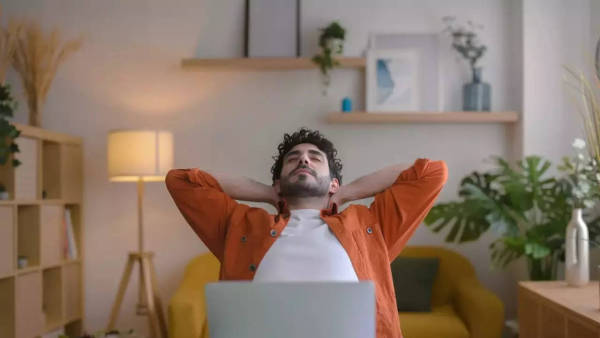
This generation of workforce is choosing to prioritize their mental health over everything else and even quitting their job - while trying not to compromise on their sanity. We have a term for it, it’s called - micro-retiring
What is micro-retirement?
Gen Z is praising the idea of "micro-retiring" — extended breaks from work that are beyond simple ‘break’s and longer than traditional vacations — as a restorative way to focus on and improve mental health.
In recent years, young working professionals have started prioritizing their mental health, much more so than previous generations have. With this in mind, some people are taking a break from their busy, working lives to 'micro-retire'. As to what this is, it's a trend that sees people who are still a long way off retirement age taking long periods of time off work, usually to travel.
Experts say there can be benefits, but only if you spend your time wisely.
Micro-retired and enjoying life!
According to Adama Lorna, a content creator on TikTok and YouTube, who describes herself as having ‘a renaissance approach to personal development’, “When you are away from that work…this time, this retirement frees up your mind.” Lorna, who says she is ‘in her 20s’, and has 140,000 followers on YouTube and 36,000 on TikTok, advocates for ‘micro-retirement’. She explains, “Instead of waiting until you were 60 or 70 to travel the world … you do them [while] you have your youth, your energy, your health.”
Another TikToker, Anais Felt, said that she is six months into her micro retirement from her corporate job and claimed, “I have never felt better. I’ve never felt healthier. I’ve never more rested. It’s been amazing.” However, Felt mentioned that before doing so, she had saved 'a sizeable chunk' and paid off her $70,000 student debt.
Another example of someone who ditched their 9-to-5 to travel is 23-year-old George Buckley. At the start of 2023, George left his job in real estate and booked a one-way flight to Thailand. To this day, George is still somewhat mirco-retired and is living his best life in Bail, Indonesia.

Is micro-retirement good for mental health?
Psychologist Dr. Christopher Fisher, director of the adult outpatient psychiatry department at Northwell tells PEOPLE, “It does empower individuals to take more control in their lives. Being able to reduce burnout, take necessary breaks, return to other commitments that they have, and then, maybe eventually return back with great rejuvenation, renewed focus, renewed energy, can allow people to feel more productive and well-rounded and fulfilled personally.”
Fisher also explains that, altering the language from “extended vacation” to “micro-retiring” can also have an impact on how the break is perceived.
As per him, “Language and framing has a lot to do with how we interpret and how we feel about certain things. Thinking about it as a micro-retirement prioritizes this time throughout their life. It's not like traditional retirement: something we're working toward that maybe we'll never hit."
Is micro-retirement a win-win situation?
Turns out, it is not.
As per Fisher, a drawback of this rising trend is that, these breaks “come at the expense of consistency and structure which I believe personally are foundational to both professional and personal growth. I think someone could lose motivation, they could miss out on opportunities if they don't have that sense of stability and structure that helps to keep people focused and on track.”
Fisher suggests spending your time wisely if one is taking the leap and micro-retiring.
In his words, “Taking time to party, drink, hang out, that might have immediate positive impact [but] in the long term you're really hurting yourself. That's not really truly prioritizing your mental health or well-being. If you're taking breaks, it's good for you to connect with the things that are most important to you and engage in value-based activities, commitments, things that truly connect to you at your core.”

What about the financial aspect?
As per Paul J. McCarthy III, president and founder of registered investment advisement firm Kisco Capital, who thinks that finances should also be considered, says “If there is a benefit” to micro-retirement, he tells PEOPLE, ”It's because they use that time to build some skill set that they didn't have before to offer to their next employment opportunity. You can use time off to learn and bring a new skill set to your repertoire for your job, but it depends how you use your time. Maybe it hurts you, maybe it doesn't.”
McCarthy explains, “If they're in their twenties, it's not really a long-term impact,” as the biggest financial risk comes from losing career-building momentum. In his words, “When you're in your twenties, you're really trying to establish your place in whatever industry you're in, so taking a sabbatical could, relative to your peers, put you in a backseat. It's not a guarantee that it'll be easy to come back into the workforce. Your peers will be surpassing you that are putting in their time and you could get looked over for better career options down the road."
He concludes by saying, “Freedom comes from financial freedom. I would say your mental health is probably affected most if you run out of money.”


